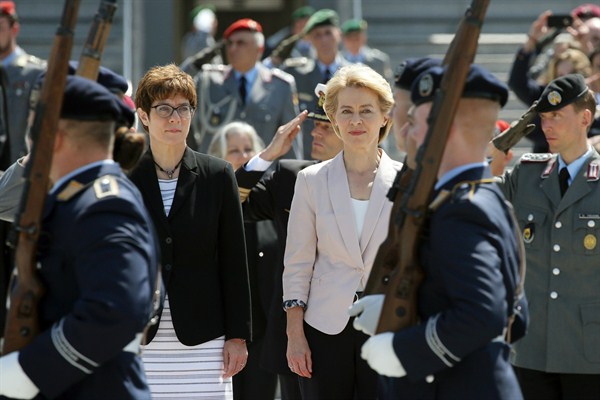Following Ursula von der Leyen’s confirmation last week, the European Union not only has its first female president of the European Commission, but also the first who was formerly a minister of defense. What will her leadership mean for the long contentious issue of European security and defense policy?
In an enthusiastic stump speech to the European Parliament in Strasbourg before she was confirmed by a vote of 383-327, von der Leyen laid out her “political guidelines” for the European Commission over the next five years. Yet defense only appeared vaguely, under the fifth objective for “a stronger Europe in the world.” For her goal of “defending Europe,” she called for “bold steps in the next five years towards a genuine European Defense Union”—something that has been discussed at length in Brussels and Strasbourg but remains elusive.
Germany and France have already promoted the development of a joint European defense initiative known as Permanent Structured Cooperation—or PESCO, in EU parlance—among other steps in response to the shocks to the trans-Atlantic alliance brought by Donald Trump’s U.S. presidency. Individual EU member states have also committed themselves to implement a few select defense projects together. In 2017, the same year PESCO was announced—which von der Leyen at the time said was “laying the foundation stone for a European Defense and Security Union”—the European Commission also created a European Defense Fund to strengthen collective European military spending with an annual budget of more than 5 billion euros. It takes effect next year.

